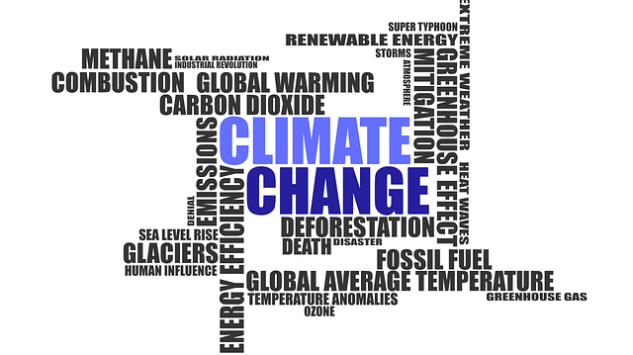Issue Briefs

Oil Badly Hurt By Global Warming Fight
Paolo von Schirach
January 04th, 2021
WASHINGTON – Well known energy expert Daniel Yergin wrote a thoughtful WSJ op-ed on the horrible headwinds the oil sector is facing on account of the lingering effects of the covid pandemic economic devastations, (The Oil Industry Is Stuck in Virus Alley, December 29, 2020). He describes the pain caused to the energy industry by the sudden collapse of oil demand due to the virtual freezing of international and domestic travel and other key energy intensive economic activities. As hundreds of millions of previously mobile people stayed at home on account of covid, demand for oil-derived fuels collapsed.
The impact of covid
According to Yergin, the open question is how long will it take for the global economy, including business and personal travel, to return to normal now that the covid vaccines distribution started. The oil sector will not recover, he warns, until the world economy will go back to normal, that is only after covid is behind us.
Fine. But is the devastating covid impact the entire oil woes story? Not really. Well before covid struck at the beginning of 2020, the oil industry was already facing other major challenges. After covid is gone these problems will still be there. But none of them were mentioned by Yergin.
There are other problems
Surprisingly, not a word in his article about the mounting threats to the profitability, and indeed continuing viability, of many oil companies represented by chronic crude oversupply, the impact on the industry of more and more global warming public policy countermeasures, and the threat of a more mature, growing electric cars industry.
Sure enough, in the short term the covid pandemic is the most immediate and historically unprecedented challenge facing the oil industry. Still, even assuming a soon to come happy ending to the covid induced global mobility and travel crisis, the oil industry future is not that bright.
Structural oversupply
Way before covid hit us in the early months of 2020, there was structural oil oversupply, largely caused by the unexpected spectacular success of hydraulic fracturing (fracking) in the US. Fracking led to the doubling of oil production in just a few years, this way cutting US oil imports by millions of barrels a day. Since major oil exporters, (Russia and Saudi Arabia in the first place), did not significantly cut their oil production as a way to offset additional supply from the US, the gigantic increase to global supply caused by the unexpected success of American fracking companies created a global oil glut and consequently a crude price collapse.
In ordinary circumstances, assuming stable or growing world demand, the global oil sector would try to find a new equilibrium via a combination of production cuts, bankruptcies of overleveraged high cost producers, mergers and consolidations. And some of this has already happened, with more to come.
In the US, the highly leveraged small and medium frackers that cannot survive with crude prices lower than their production costs (on average about $ 50 per barrel) have gone bankrupt, or sold theirs assets and gone out of business. But, industry consolidation and production cuts notwithstanding, oil prices did not go back to $ 100 per barrel, a level that would guarantee healthy profits for most participants. Please note that all this was pre-covid.
Battered stocks
Investors noticed. Indeed, even in the context of a growing US economy, for many years oil companies underperformed most of the others stocks. In 2019, well before the covid induced additional price collapse, energy companies were dead last in the US S&P 500. Yes, bottom of the bottom –in a heavily oil dependent, booming US economy.
Going forward, even in a back to normal post-covid global economy, oil overproduction and therefore low prices will probably continue, reducing the profit margin outlook for oil companies large and small. Even with covid well behind us, do not expect a much diminished Exxon to make it back to the Dow Jones Industrials index.
Anti-oil public policies
And this is only half the story. Indeed, beyond the supply glut, we have to factor the impact on the oil industry of public policy responses to global warming enacted or about to be enacted by many governments in the developed world.
While it is doubtful that in the near and medium term there will be truly viable energy alternatives to fossil fuels, the now accepted conventional wisdom (right or wrong as it may be) is that as a minimum governments must work with alacrity –starting immediately– to devise ways to reduce fossil fuels consumption. In the near term, we can expect new or higher carbon taxes, higher gasoline taxes, and more mandates for more fuel efficient vehicles. All these public policy measures will make sure that demand for oil-derived products will not grow.
The combined damage of the oil glut and public policy changes is already felt. For instance, in Alberta, Canada, the once thriving oil sands business was in recession pre covid. Countless jobs have been lost. The industry experts realize that this slump, while made much worse by covid, is here to stay. The Alberta Provincial Government is trying to find magic recipes to quickly diversify the oil dependent economy. In the US, thousands of fracking related jobs have been lost, while the economic pain has spread to the vast universe of suppliers and vendors, from pipe makers to those delivering sand used for fracking.
Electric vehicles have arrived
And then we have electric vehicles, EVs, finally becoming viable. Granted, EVs to date represent only a small fraction of total US and global auto production. Even assuming significantly higher numbers due to technological breakthroughs in battery technologies, it will take decades before the world automobile fleets will become mostly electric. All true. But, with sector leader Tesla finally becoming profitable, we probably have reached an inflection point.
For these and other intangible reasons, we have now a new strong anti oil sentiment spreading throughout the world. For example, the government of Denmark recently announced that it wants to phase out dependence on fossil fuels. The Japanese government indicated that it wants 100% electrification of the car sector by 2035, or so. A few months earlier, California declared a ban on the sale of new gasoline powered vehicles by 2035. The big automakers got the message. They have responded to the these new policies with big announcements about investments of billions of dollars in new lines of EVs. They are not betting on a bright future for gasoline powered vehicles.
Not a bright outlook for oil
It is true that we still do not have the proven, scalable technologies that will quickly get us to a new post-oil world. Still, increasing opposition to fossil fuels and more aggressive investments in the development of alternatives to the internal combustion engine are the new trends. Given all this, looking at the world ten or fifteen years from now, there are good reasons to project at best stagnant oil demand.
If this is indeed the case, who wants to invest today in major new oil projects that require huge up front capital outlays, normally justified with the assumption of steady returns over at least a decade? Getting beyond the covid induced oil crisis will be helpful for the battered oil industry. But it will not put an end to the fossil fuel sector’s systemic problems.
 |
Paolo von Schirach is the President of the Global Policy Institute, a Washington DC think tank, and Chair of Political Science and International Relations at Bay Atlantic University, also in Washington, DC. He is also the Editor of the Schirach Report. |